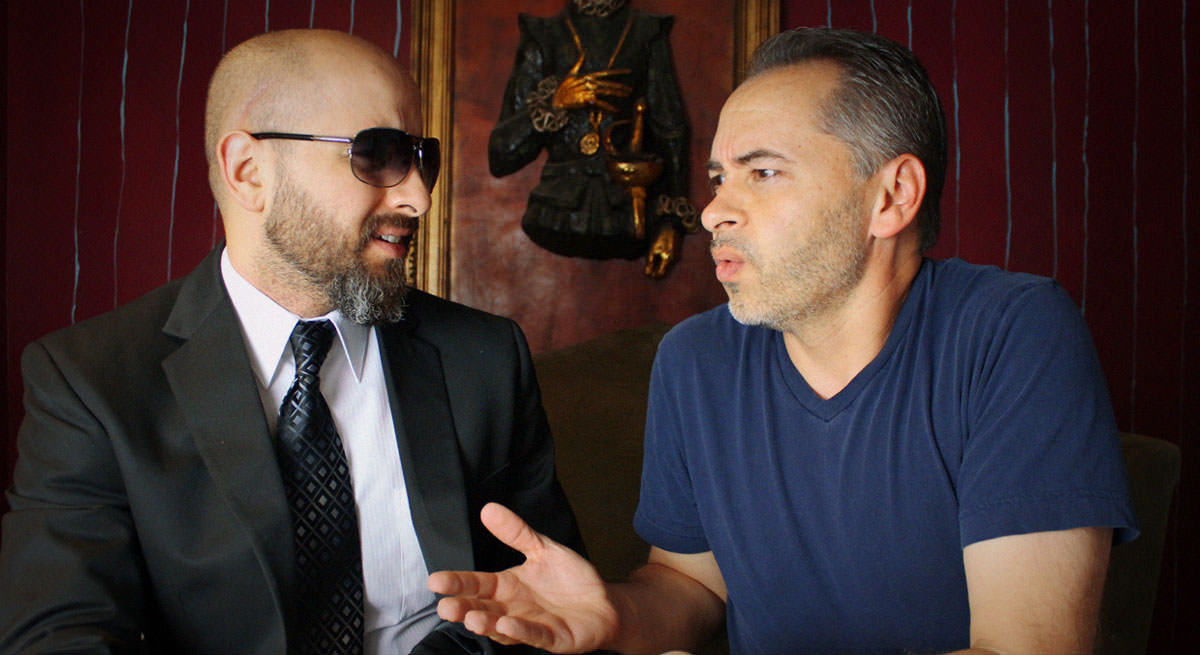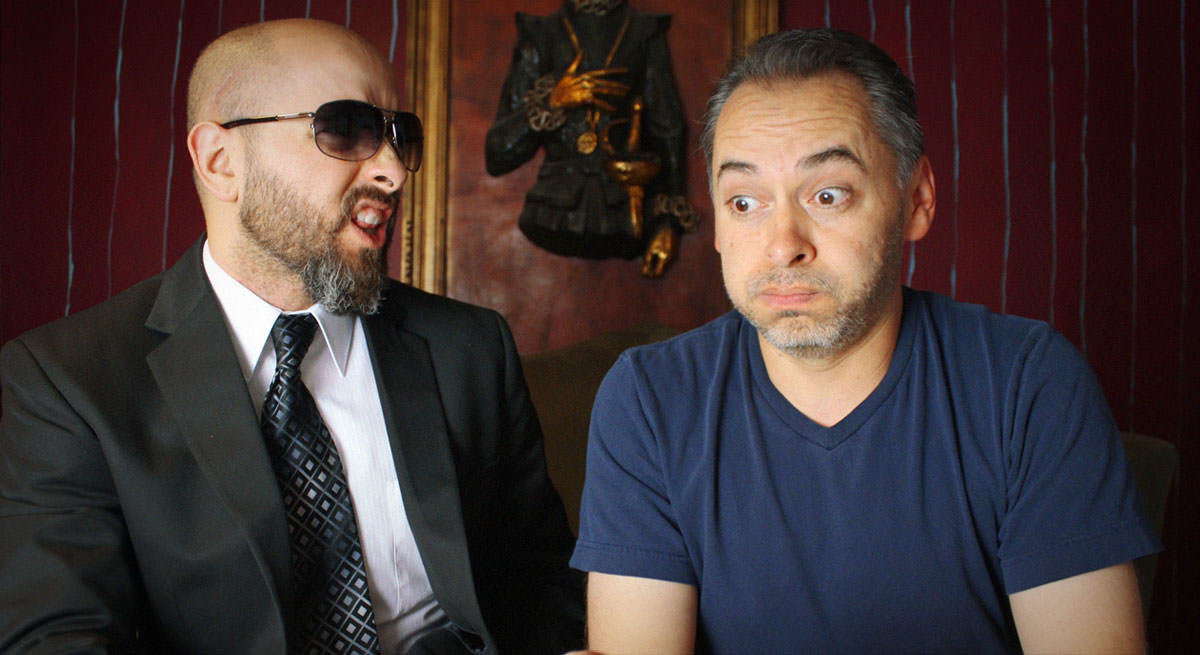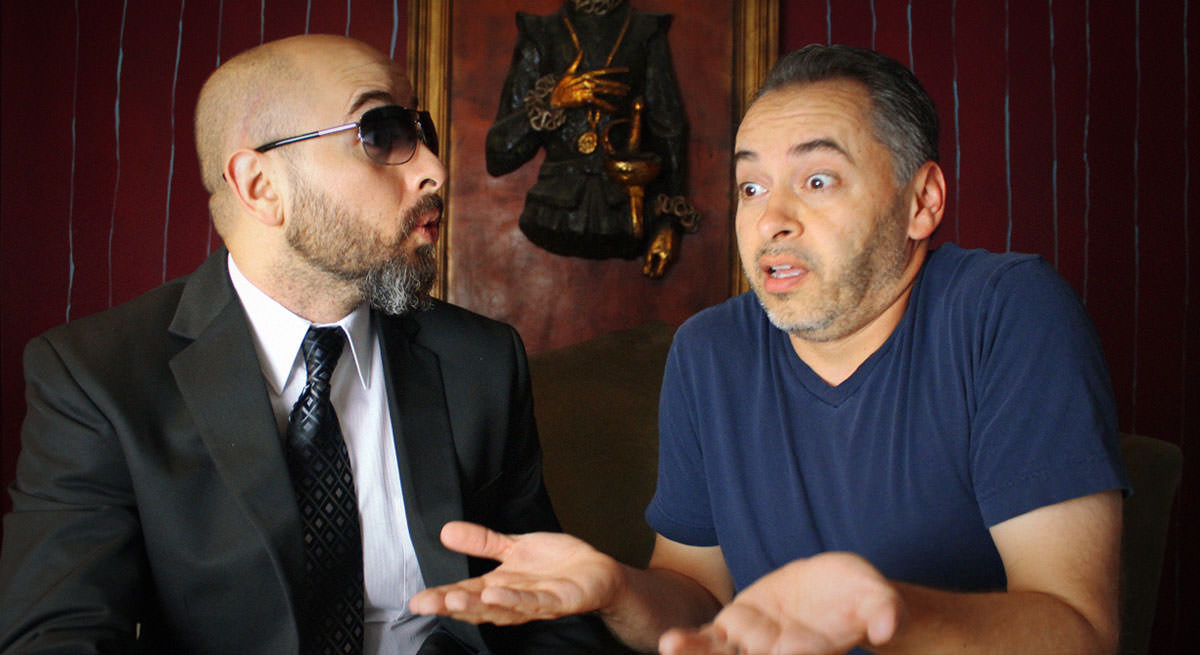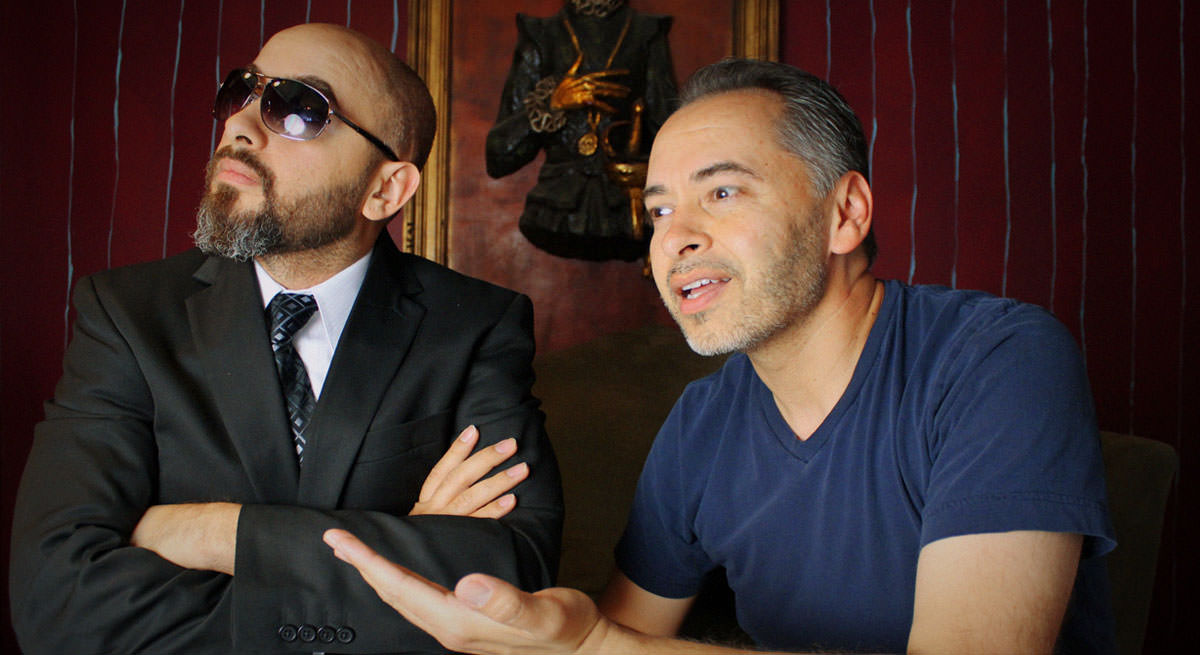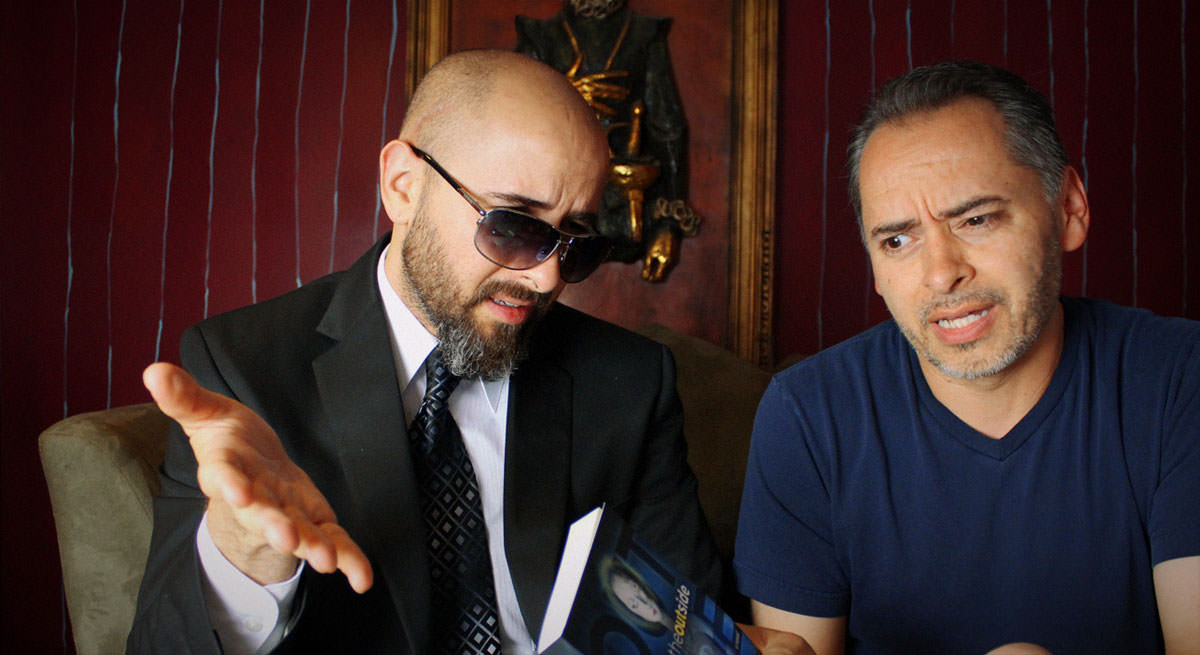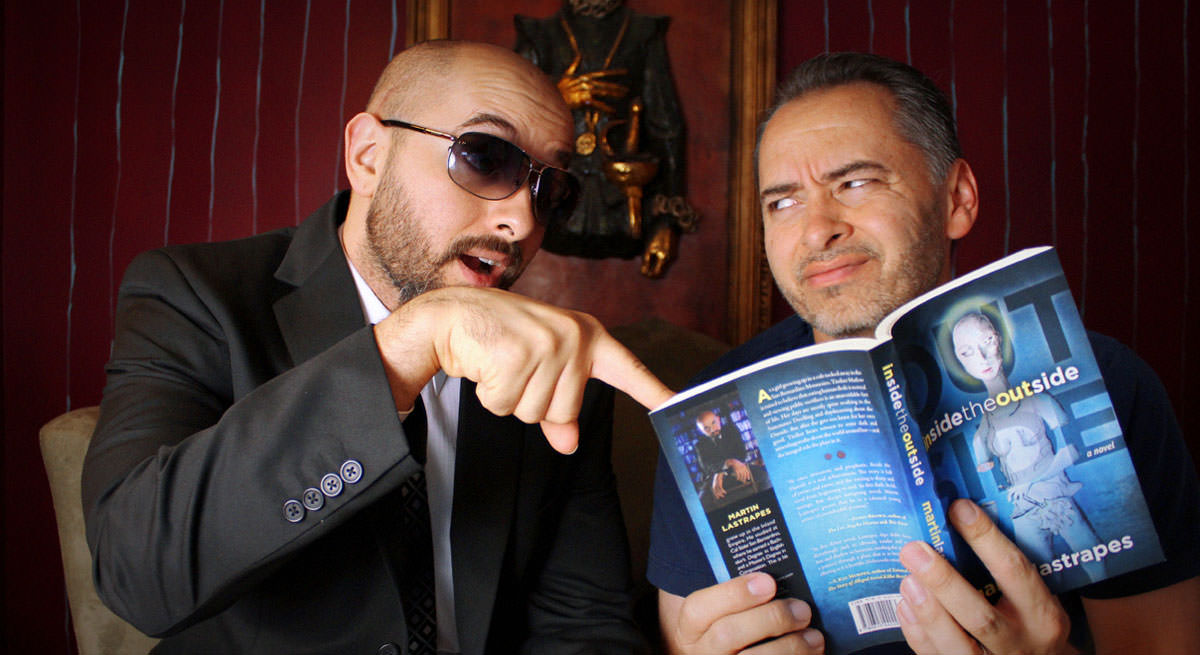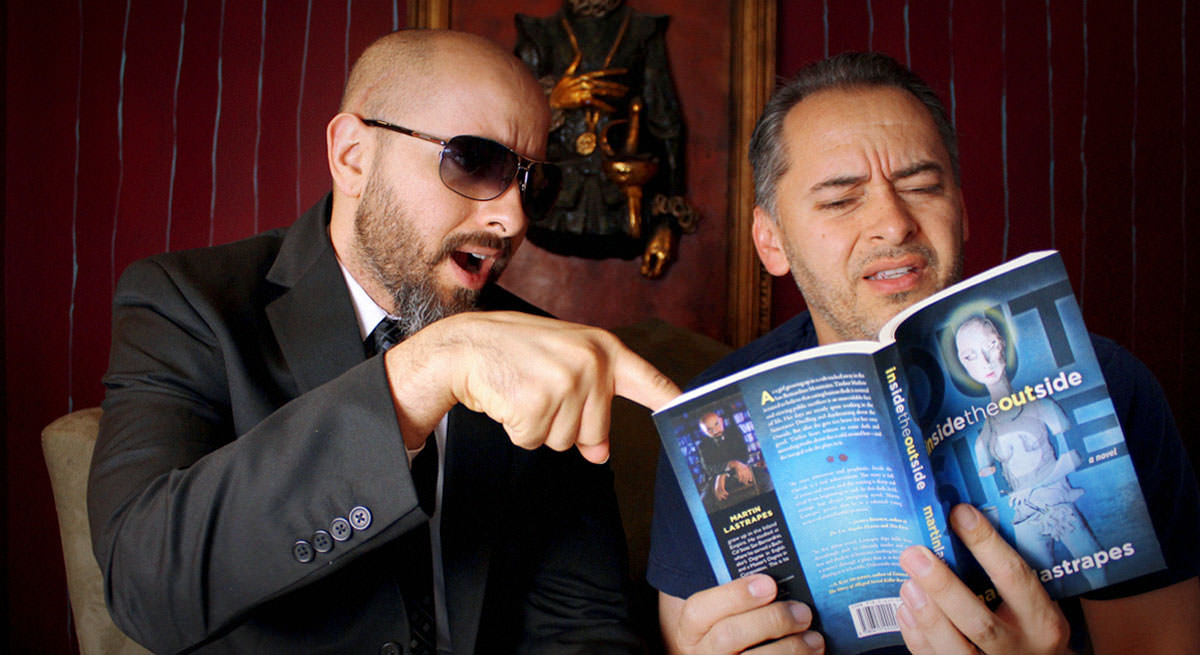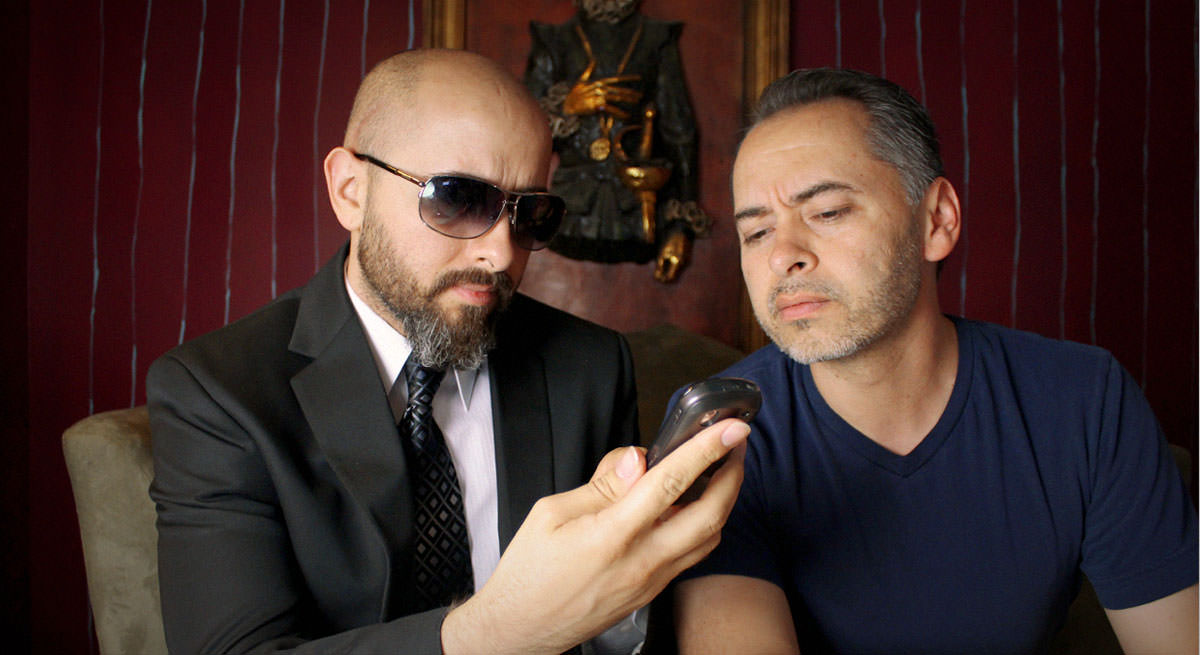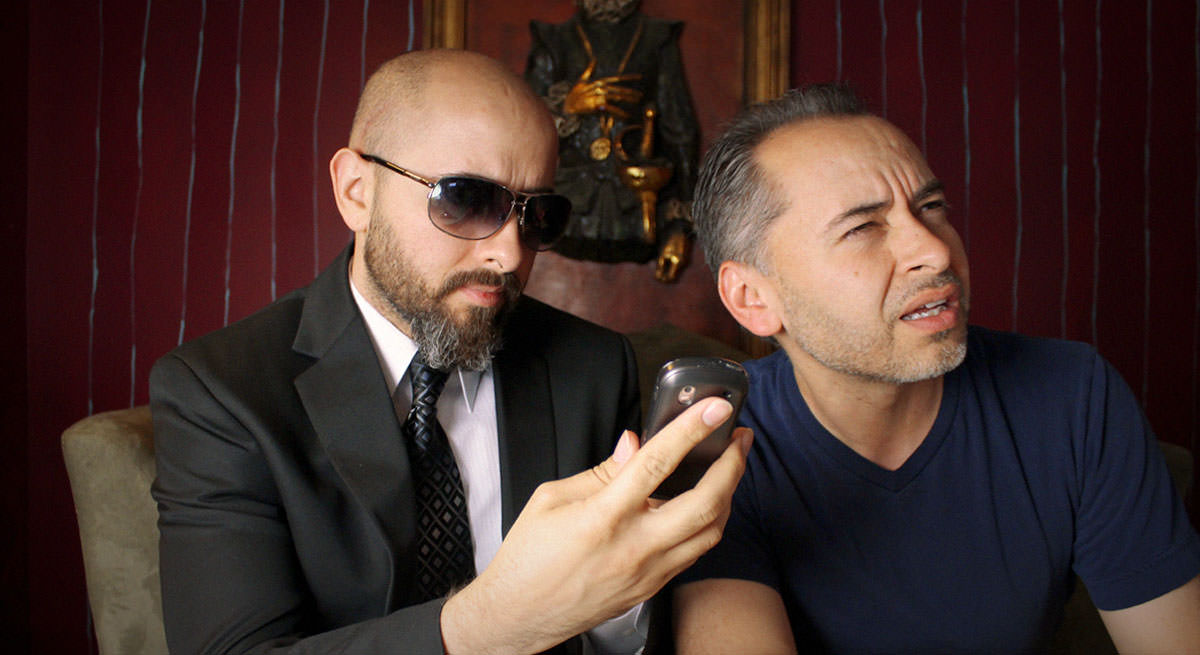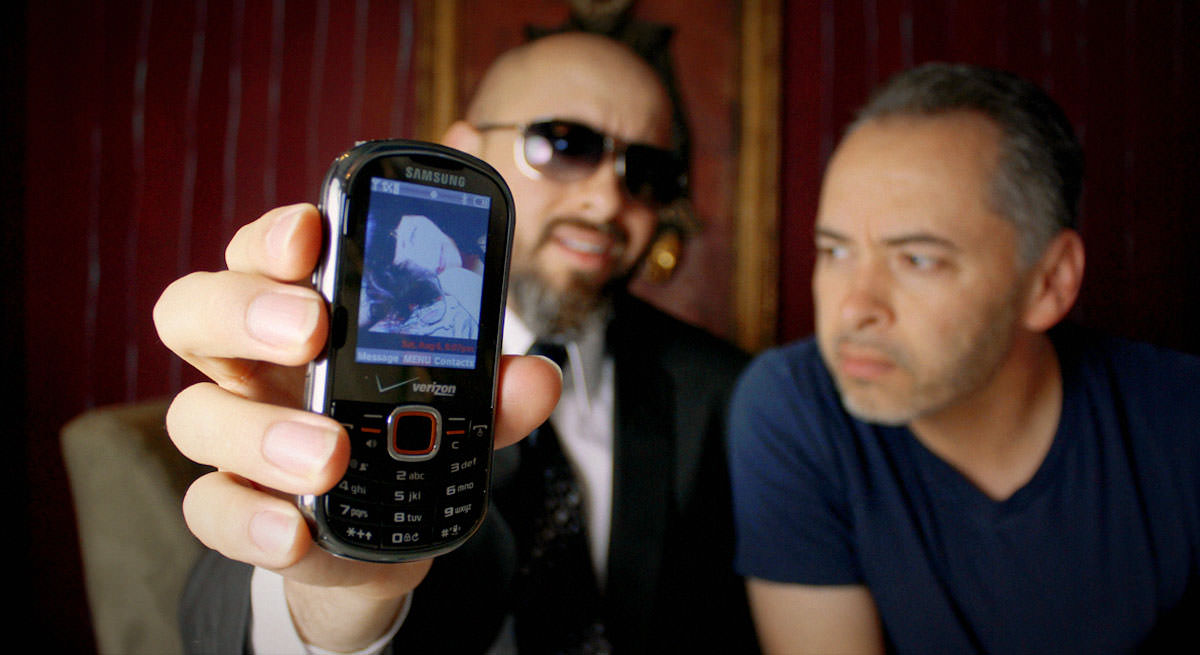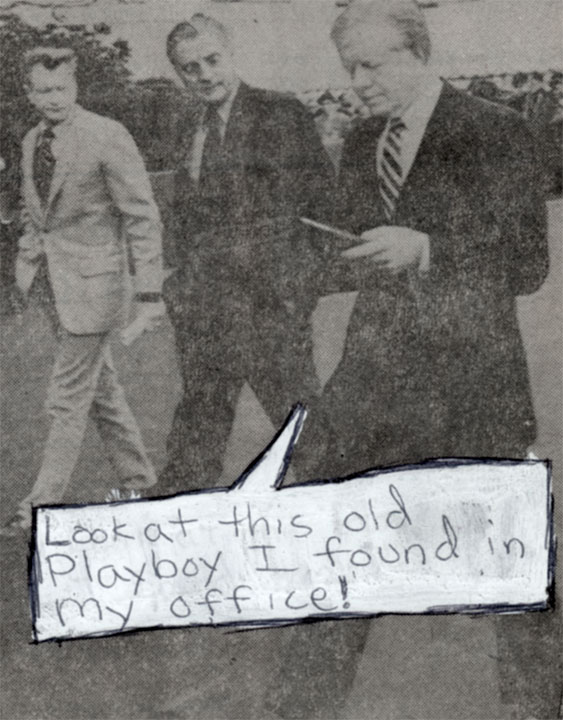In 2007, Eric Donald (aka Benny Coma) started a blog called Criticide (as in the murder of criticism), dedicated to calling out those film critics, past and present, whose reviews were less than partial, unfair or just plain nasty. I designed the site in eyeball-assaulting primary colors and contributed regularly as the acerbic, Lucky Strike-chomping criticassin Popcorn Peter. Originally published July 26, 2007, here's a post I called:
AS A MATTER OF FACT, I AM TALKING TO YOU
Back in the fall of '05, (fellow criticassin) Salty, his old lady and yours truly trekked on down to the multiplex to get ourselves a helping of David Cronenberg's latest, A History Of Violence. “Well, old beans,” our self-satisfied grins seemed to say to each other in fake British accents, “Old Crony's done it again.” We took turns slapping each other on the back for knowing, even before the film started, that he wouldn't let us down. Later, as the film revealed itself to us in no uncertain terms, we sat transfixed by the genius flashing before our eyes. Over the next hour and a half, when we weren't marveling at the audacity of this cinematic masterwork, we were consumed with the thought that Viggo Mortenson now knows what Maria Bello's chuckwagon smells like*.
End titles. As we are dabbing the beads of sweat from our considerable foreheads, basking in the radiation of that post-film twilight we know so well, another theater patron yells out from a few rows back, “THAT WAS BULLSHIT!” Did he just...? Why that...! But what could we do but laugh? After all, he was much bigger than any of us. So laugh we did: up the aisles, into the lobby, out into the parking lot and beyond.
That the poor fellow was a meathead, there is no question. But, really, is he meatier of head than any of the rest of the hacks we here at Criticide have taken it upon ourselves to digitally tar and feather? Despite the stockpiles of nerve and grit with which he endowed his pronouncement, there was yet a note of humility, self-knowledge, honor even. Here was a simple man (in cartoonishly baggy clothing) simply stating his opinion. “Look,” he may as well have said, “I'm no Gene Siskel, but I know what I like.”
True dat. He is no Gene Siskel. But who is anymore? Not even Gene Siskel, that's who.
And neither are you, dear reader, so don't look so smug. Don't think we (me, your family, your friends, and those people you desperately need to overhear you in public restrooms and Starbucks) haven't noticed you loudly parroting sound bites from Entertainment Tonight and passing them off as your own spontaneous thoughts. In fact, we'd all love it if when asked what you thought of a movie, you'd unleash a tsunami of brevity upon your response, as did our be-backward-baseball-capped pal from paragraph two. Speak plainly. What's with the My Hairdresser Works On Brian Grazer's Wife Which Somehow Makes Me A Hollywood Insider Whose Opinion You Should Care About bit? You don't have to put on airs on my account. Don't think for a moment that, just because I am a Highly Regarded Expert/Reputed Film Snob, you ever have to feel the need to justify your farkakte taste in movies to the likes of me.
If I ask your opinion, I'm probably just making conversation. Actually, I'm definitely just making conversation. I am certainly not asking because I need someone to make my mind up for me. I have Deepak Chopra for that. If I really needed someone to deconstruct the new Kevin Smith film for me – this includes you, Kevin Smith – you are probably not the person I'd go to anyway (cue Jessica Simpson). No matter what you say, I will still buy a ticket to the film in question, assuming I am so inclined. And that it tested well.
Your earnest decree that a film is “uneven” means nothing to me, primarily because the phrase itself means nothing. I'm pretty sure that not even you know what you mean when you say it. Don't bother telling me that it was poorly directed, either, when both you and I know full well that you only have a vague idea what directors do in the first place. I mean, aside from congratulating themselves on commentary tracks. And I swear to God that every time you start rattling off continuity errors I wanna put my head through a glass tabletop, William Holden style. I mean, really, who the fuck cares if the heroine's enchanted wool socks were brown in the turkish bath and blue in the bell tower? That's the wrong kind of paying attention! Oh, and nothing screams out "I'm A Twat" like alluding to bad buzz and low box office numbers to support your argument. Twat.
Sorry for turning on you, chum, but something had to be said. If you don't like a movie, ditch the song and dance and just say so. As the lug from the movie theater knows, there's nothing wrong with having an opinion; just don't try to disguise it as something loftier. At its best, criticism is much more than just tarted-up opinion. It should challenge and inspire both filmmaker and spectator, and serve only to advance the art. The only film criticism worth enduring transcends self-important posturing and evaluates the failures and successes of a film within the context of the filmmaker's intent, and is not just a play-by-play of how you would have done it were it your movie to make. Which it wasn't. Dismissive and snarky does not equal credible and well-considered. It equals bullshit.
*Lilacs?


